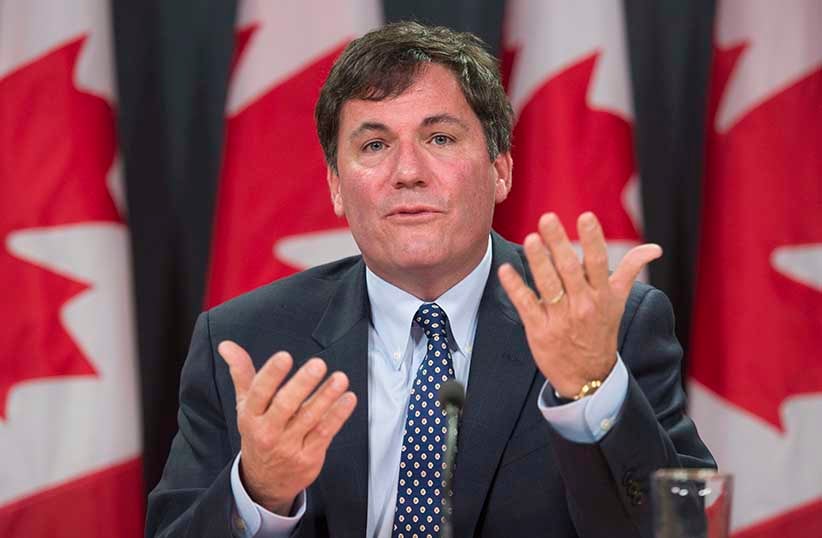Trudeau’s pointman in the House on electoral reform
After promising legislation in 18 months to reform first past the post, Dominic LeBlanc says change ‘should be done by consensus’
Government House leader Dominic LeBlanc gestures during a news conference in Ottawa, Thursday December 3, 2015. (Adrian Wyld/CP)
Share

The new government’s commitment to change the way Canadians elect MPs has erupted as one of the first serious debates of the Justin Trudeau era. The Liberals ran on a promise to set up a parliamentary committee to look at alternatives to the traditional system, often called “first past the post,” in which the candidate with the most votes in a riding gets to be MP, and the rest get zilch.
The alternatives include variations on proportional representation, in which a party’s number of MPs more closely reflects its share of the vote, and ranked balloting, in which voters rate candidates from most to least preferred. Trudeau vowed to introduce legislation within 18 months to make sure the 2015 election was the last fought under the familiar first past the post system.
In an interview, I asked Dominic LeBlanc, the veteran New Brunswick MP who is now a key Trudeau parliamentary lieutenant as Government House Leader, about the controversial push to change the way Canadians vote. Below is our exchange, in which LeBlanc strongly suggests the Liberals would prefer not to press ahead on this promise without substantial support from the opposition parties.
Q: On electoral reform, there was a poll out recently, commissioned by the Broadbent Institute, done by Abacus Data, that suggested quite an entrenched attachment to the status quo. If they are offered options, quite a few Canadians like first past the post—
A: Well, that could be because they’re so excited about the government they elected just a few months ago—
Q: You say that jokingly but—
A: I actually think if you look at the support that Mr. Trudeau and his government and his caucus have, people seem happy. I’m seeing all over the place that they are shocked that they could change a government.
Q: A lot of people like the system we have. We’ve had three provincial plebiscites on it; the UK went through a referendum. The traditional system won in all cases. So why would you go into this process assuming there must be change? Shouldn’t the possibility that most Canadians are content with the status quo be on the table?
A: Look, ultimately, we think Canadians are prepared to consider and look at different ways to organize an electoral system, or different ways to elect a Parliament. I am struck by the high level of misunderstanding and confusion, because these tend to be, in many cases, rather complicated discussions around pure proportional representation vs. mixed proportional representation vs. preferential balloting. I get asked about it at the campus of Mount Allison University in my riding, but I don’t get asked about it at the Tim Hortons in Cap-Pelé or Bouctouche.
Q: You’re making a case for not doing it. If people aren’t talking about it, maybe they don’t want it.
A: Well, the commitment was to consult.
Q: No, the commitment was to get rid of first past the post within 18 months, if you don’t mind me saying so, minister.
A: The commitment was that the last election was to be the last one under [first past the post].
Q: With legislation for a new system within 18 months, which I believe is what’s in your platform.
A: Legislation to be presented; I don’t know if it’s to be adopted [in that time]. Look, if we’re honest, if there is an overwhelming, massive conclusion that Canadians are so profoundly attached to the current system and believe it bears no adjustment, the government might be in a position to consider that. That was not our impression two months ago and it wasn’t our impression two years ago. That’s why we want to have a consultative process.
But changing the electoral system in a perfect world should be done by consensus, or with broad support in Parliament. I never thought that one party with a majority rewrites the rules that apply to everybody else. That was something we were profoundly unhappy with in Mr. Harper’s completely phony Fair Elections Act.
That was an example where a majority was changing the rules that affected everybody over the vociferous and, I think, compelling arguments of those that opposed it. I hope and believe that that’s not where we end up.